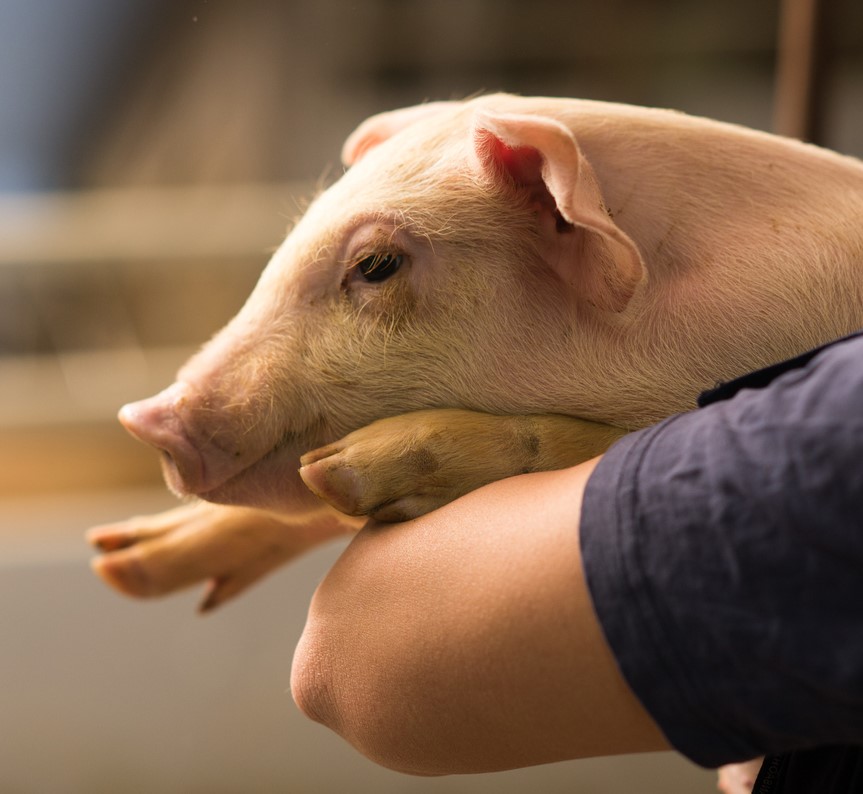
Xenotransplantation, a groundbreaking field in biomedical research, holds immense promise for addressing the critical shortage of organs available for transplantation. Recent advancements, such as the pioneering study conducted by researchers in China, underscore the importance of porcine tissue and organs in advancing human health and medicine.
In this study, scientists at the China Organ Harvest Research Center genetically engineered pigs with human DNA and successfully implanted skin grafts into monkeys. This marks a significant milestone in xenotransplantation. This innovative approach, aimed at overcoming the genetic incompatibilities between species, opens new avenues for skin and organ transplantation.
Revealing Insights through the Porcine Models
The process of xenotransplantation involves transplanting or grafting tissue or organs from one species to another, offering hope for patients awaiting organ transplants worldwide. With the number of individuals awaiting organ transplantation far exceeding the number of available organs, xenotransplantation emerges as a potential solution to this pressing issue.
While traditional research swine have been instrumental in biomedical studies due to their physiological similarity to humans, they often fall short in compatibility for transplants. However, through genetic modification, donor pigs can be tailored to better match the immunological and molecular characteristics of human recipients.
The research team in China employed advanced genetic editing techniques, including CRISPR/Cas9 technology, to modify pig genomes and enhance compatibility with human recipients. By removing key pig genes responsible for triggering organ rejection and incorporating human genes, they achieved successful skin graft transplantation in monkeys without the need for immunosuppressive drugs.
Persistent Challenges in Xenotransplantation
Despite these significant advancements, challenges persist in the field of xenotransplantation. Extensive genome editing for specific pig cells may not be feasible on account of telomere length and lengthy cell culture times. Additionally, there remains a theoretical risk of porcine endogenous retroviruses infecting human hosts, although the likelihood is considered low.
Nevertheless, the success of this study represents a major step forward in transplantation medicine. It has the potential to revolutionize the treatment of severe burns and organ failure, offering hope to patients with limited therapeutic options.
The importance of this research extends beyond skin transplantation, paving the way for future preclinical and clinical trials involving other organs. By demonstrating the feasibility of xenotransplantation using genetically modified pigs, researchers are exploring the possibility of expanding the organ donor pool and addressing the persistent shortage of organs for transplantation.
The Role of Porcine Tissue Xenotransplantation Research
Animal Biotech Industries, Inc. recognizes the significance of porcine tissue and organs in advancing xenotransplantation research. As a leading provider of ethically sourced post-mortem animal tissues, organs, and biological fluids, we are committed to supporting biomedical researchers, universities, and government organizations in their quest for scientific advancement.
With twenty years of experience, we have cultivated a team of expert anatomists and physiologists who specialize in harvesting a wide array of pig tissues, glands, organs, and secretions. We offer customized harvesting services tailored to the specific requirements of researchers, ensuring rapid and precise processing to maintain the quality of tissues and organs throughout the extraction and preservation process.
Whether you require porcine integumentary system tissue for xenotransplantation studies or other biological materials for research purposes, Animal Biotech Industries, Inc. is here to assist you.
Contact us today to learn more about our services and discover how we can support your next project in advancing human health and medicine through xenotransplantation.


